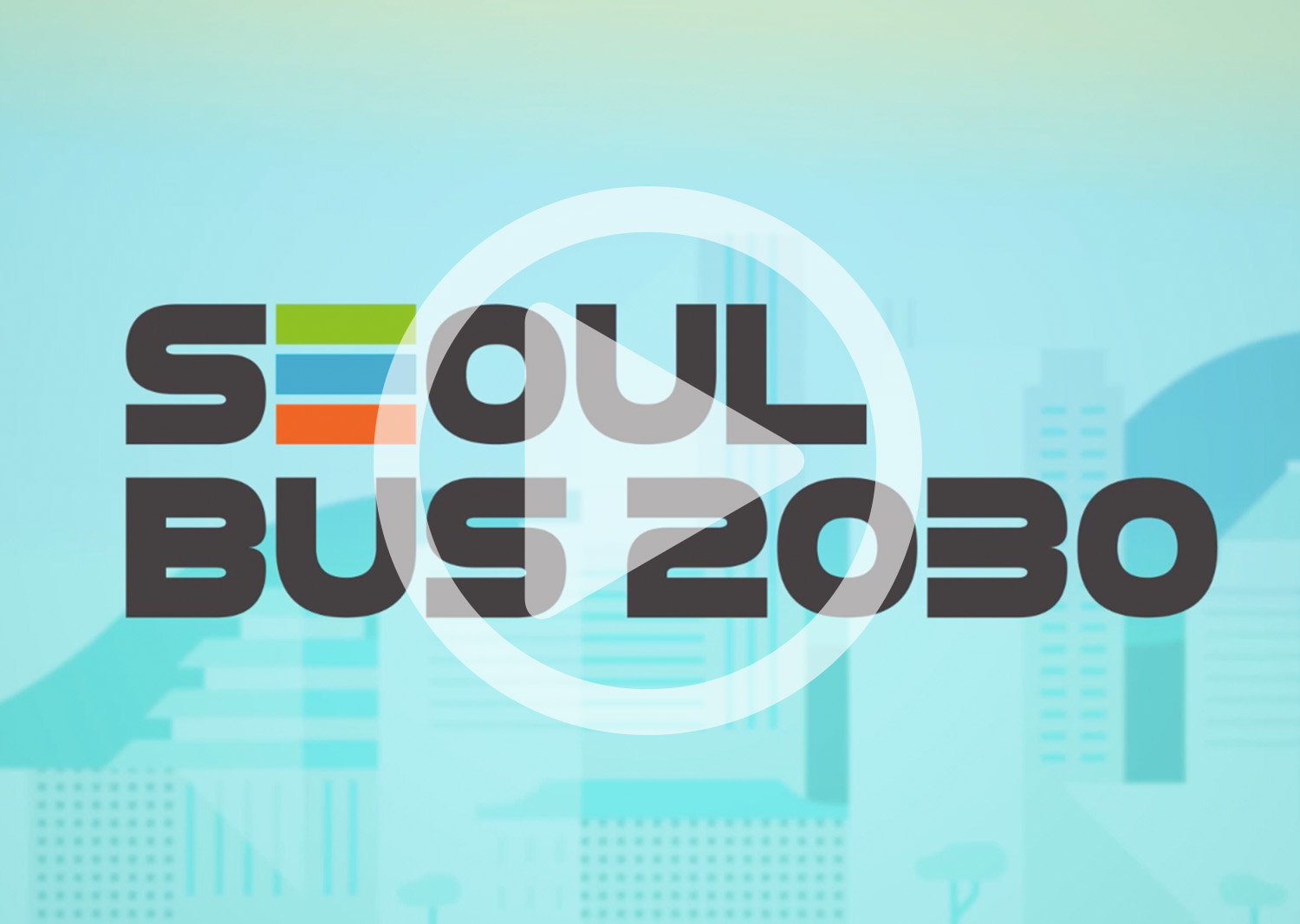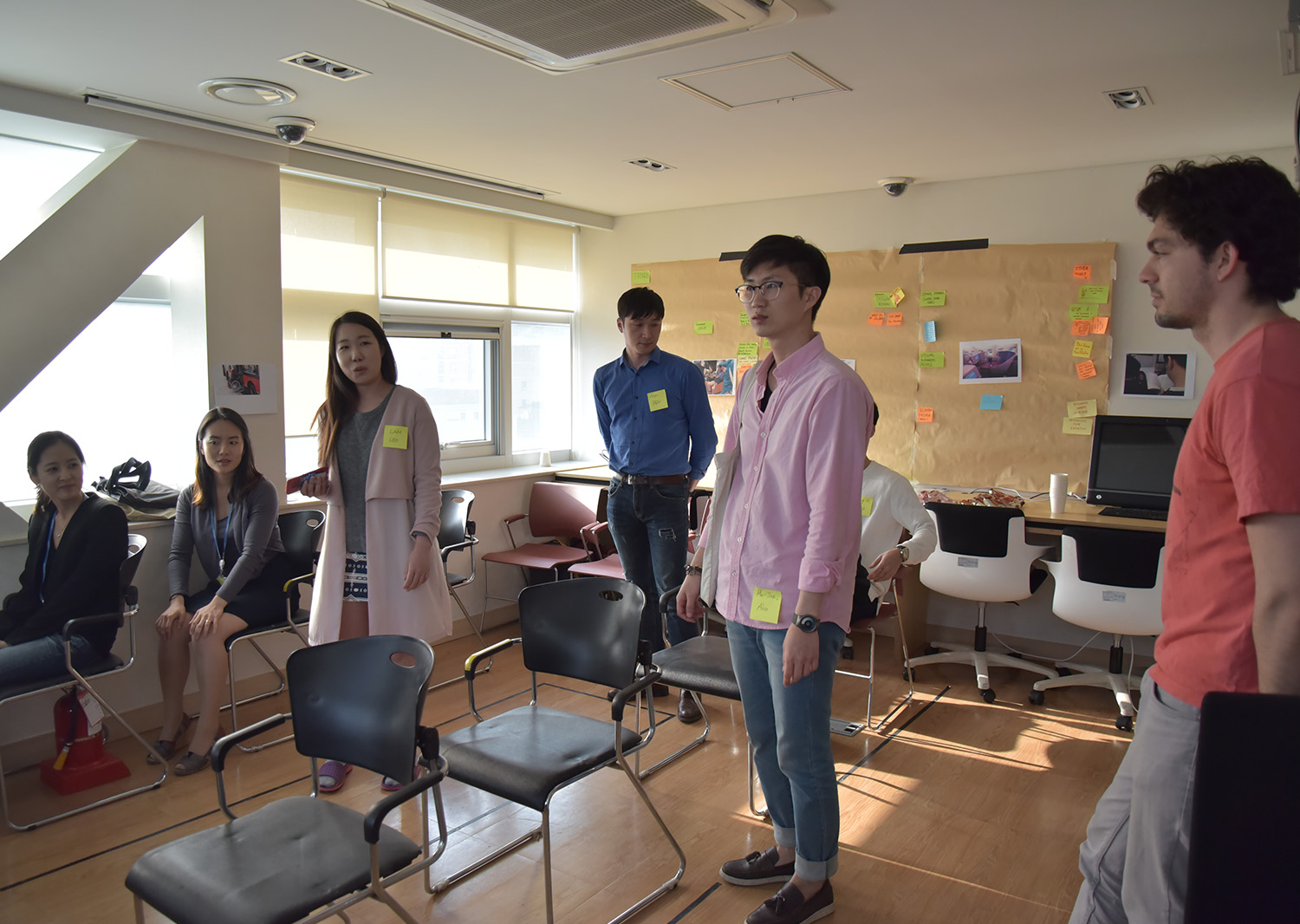

Student / Professional project
In 2030, life in Seoul, South Korea, is convenient and connected, but people struggle to exercise their individuality in a society that holds them tied to old practices. Seoul Bus 2030 empowers everyone to own their journey and use their commuting time to pursuit their individual interests and become better. Autonomous pods offer different environments for passengers to choose, and an onboard host provides them with service and coaching. The project was carried using Vision in Product Design (ViP).

The Seoul Design Foundation searched new concepts for ‘smart’ buses for 2030 that would improve Seoul’s public transportation, inspire its citizens, and place the city as a reference worldwide in terms of mobility. Three joint projects were set up, where the designers researched and developed a joint concept together, and then each one deepened in a different aspect of the concept individually.


The team travelled to Seoul to experience its public transportation and talk to users and stakeholders. People perceive commuting as wasted time and feel anxious because of the fast pace of life. The purpose of the journey, the driver and other passengers have a great influence in the travel experience. Due to Seoul’s great size and population, buses are designed to optimize capacity and deboard efficiently.


Changing and stable factors were researched and structured into four megatrends for Seoul in 2030: Technology makes life more convenient, the nature of work changes, individual values become stronger, and society struggle with this shift of values. In this future context, people will feel empowered to become the best version of themselves, but how to spend time meaningfully will become a challenge.


In a world where people struggle to exercise their individuality and new values because society holds them tied to old practices, we want to provide people with the time and place to explore their individuality. We want to enable commuters to own their journey, so that they can use their commuting time for themselves, in the way they think is more meaningful.


Seoul Bus 2030 consists in self-driving pods with different environments, designed to support and adapt to what passengers want to do during their journey. It enables them to decide consciously how to spend their commuting time and encourages them to use it meaningfully. Three concepts were developed upon the joint concept, deepening in interior design, service, and infotainment.






In Seoul Bus 2030 there is no need for drivers, but keeping a human touchpoint with the service boosts the experience. The host is a friendly authority onboard that works in synergy with the vehicle to provide passengers with peace of mind, ensure a pleasant journey, and foster personal development. Artificial intelligence and wearable technologies provide him or her with the right information at the right time, control of the vehicle, and physical support.




The project was exhibited at the Seoul Smart Mobility Conference 2016, next to projects from other prestigious universities and talks from industry leaders such as Hyundai, Nissan and Yanfeng Interiors.



Teamwork with:
• Anand Khandelwal (Interior design)
• MinSung Kim (Infotainment)
TU Delft / Seoul Design Foundation
November 2016